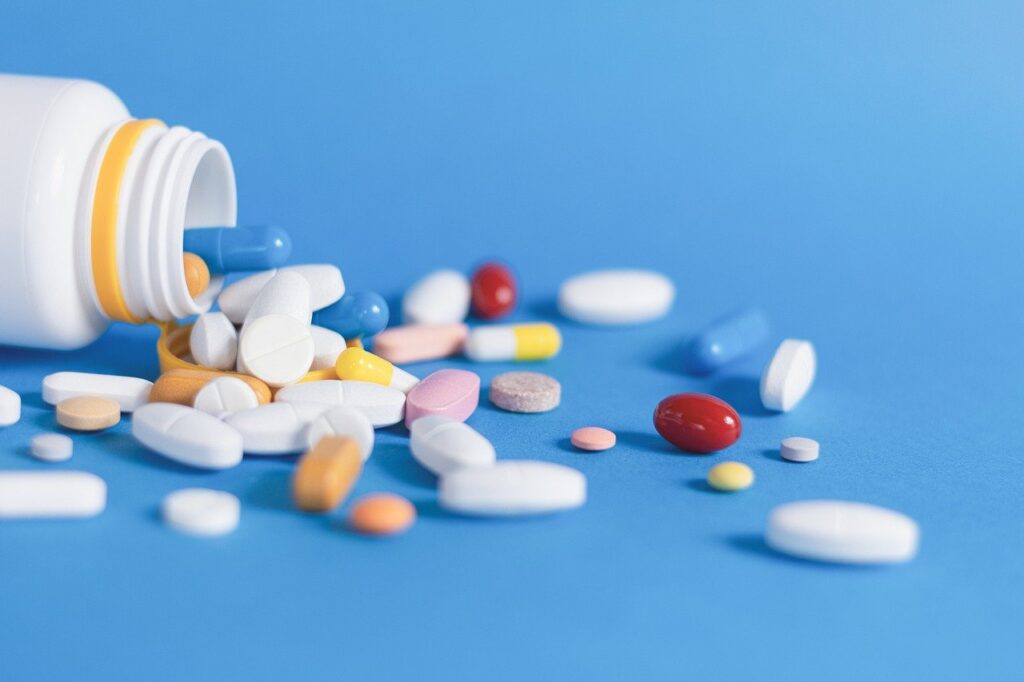Living with diabetes can be a daily battle of managing blood sugar levels, but there are supplements available that can provide a helping hand. In this article, we will explore ten supplements that have shown promise in helping manage diabetes. From cinnamon to chromium, these natural remedies may offer additional support in maintaining healthy blood sugar levels. So, whether you’re searching for alternative treatments or looking to supplement your current diabetes management plan, read on to discover the potential benefits of these ten supplements.
1. Alpha-Lipoic Acid
Alpha-Lipoic Acid (ALA) is a powerful antioxidant that has been found to have potential benefits in managing diabetes. It has been shown to enhance insulin sensitivity, improve glucose uptake, and reduce oxidative stress. ALA is also known for its ability to improve nerve function and reduce symptoms of diabetic neuropathy.
When it comes to dosage, the recommended amount of ALA for diabetes management is typically between 300-600 mg per day. It is important to consult with a healthcare professional to determine the appropriate dosage for your specific needs.
While ALA is generally safe for most people, there are some possible side effects to be aware of. These can include a skin rash, stomach upset, and a decrease in blood sugar levels. It is important to monitor your blood sugar levels closely if you are taking ALA, especially if you are also on other medications for diabetes.
There are some precautions and considerations to keep in mind when taking ALA. It is not recommended for pregnant or breastfeeding women, as there is limited research on its safety in these populations. ALA may also interact with certain medications, so it is important to inform your healthcare provider about all medications and supplements you are taking.
2. Chromium
Chromium is a mineral that plays a role in regulating blood sugar levels. It is involved in the metabolism of carbohydrates and helps enhance the action of insulin. Supplementing with chromium has been shown to improve insulin sensitivity and glucose control in individuals with diabetes.
The recommended dosage of chromium for diabetes management is typically between 200-1000 mcg per day. It is important to start with a lower dosage and gradually increase it to minimize any potential side effects.
Possible side effects of chromium supplementation are rare but can include stomach irritation and allergic reactions. High doses of chromium can also lead to kidney damage, so it is important to stick to the recommended dosage.
It is important to note that chromium supplements should not be used as a substitute for diabetes medications prescribed by your healthcare provider. It is always best to consult with a healthcare professional before starting any new supplement regimen.

3. Magnesium
Magnesium is an essential mineral that is involved in over 300 biochemical reactions in the body. It plays a crucial role in carbohydrate metabolism and insulin sensitivity, making it an important mineral for diabetes management.
The recommended daily dosage of magnesium is around 300-400 mg for adults. It is important to note that individual needs may vary, so consulting with a healthcare professional is recommended.
Possible side effects of magnesium supplementation are rare, but they can include diarrhea, stomach cramps, and nausea. High doses of magnesium can also lead to magnesium toxicity, so it is important to stick to the recommended dosage.
People with kidney disease should be cautious when taking magnesium supplements, as impaired kidney function can affect magnesium levels in the body. It is always best to consult with a healthcare professional before starting any new supplement.
4. Cinnamon
Cinnamon is a popular spice that has been found to have potential benefits for blood sugar control in individuals with diabetes. It has been shown to improve insulin sensitivity and reduce fasting blood sugar levels.
When it comes to dosage, there is no specific recommended amount of cinnamon for diabetes management. However, studies have typically used doses ranging from 1-6 grams per day. It is important to note that cinnamon supplements are not a replacement for diabetes medications prescribed by a healthcare professional.
Possible side effects of cinnamon supplementation are rare, but they can include digestive issues such as diarrhea and stomach upset. It is important to start with a lower dose and monitor your body’s response before increasing the dosage.
It is important to choose high-quality cinnamon supplements from reputable brands to ensure purity and potency. Cinnamon supplements may interact with certain medications, so it is important to consult with a healthcare professional before starting any new supplement regimen.

5. Bitter Melon
Bitter melon is a tropical fruit that is known for its potential impact on insulin sensitivity. It contains compounds that have been shown to stimulate the uptake of glucose into cells, thereby helping to lower blood sugar levels.
The recommended dosage of bitter melon for diabetes management varies widely. It can range from consuming the fruit itself or taking it in supplement form. When taking bitter melon as a supplement, it is important to follow the dosage recommendations on the product label.
Possible side effects of bitter melon supplementation may include gastrointestinal symptoms such as diarrhea and stomach upset. Bitter melon may also interact with certain medications, so it is important to consult with a healthcare professional before starting any new supplement.
There are some considerations to keep in mind with bitter melon. It should not be used by pregnant women, as it may have potential adverse effects on pregnancy. Bitter melon may also lower blood sugar levels, so it is important to monitor your blood sugar closely if you are taking it alongside other diabetes medications.
6. Gymnema Sylvestre
Gymnema Sylvestre is an herb that has been used in traditional medicine for its potential role in lowering blood sugar levels. It contains compounds that can block sugar receptors in the intestines, thus reducing the absorption of sugar into the bloodstream.
The recommended dosage of Gymnema Sylvestre for diabetes management varies. Research studies have used doses ranging from 200-800 mg per day. It is important to consult with a healthcare professional to determine the appropriate dosage for your specific needs.
Possible side effects of Gymnema Sylvestre supplementation are rare, but they can include digestive issues such as stomach upset and diarrhea. It is important to start with a lower dose and monitor your body’s response before increasing the dosage.
Gymnema Sylvestre may also interact with certain medications, so it is important to consult with a healthcare professional before starting any new supplement regimen.

7. Berberine
Berberine is a compound that is found in several plants, including goldenseal and barberry. It has been found to have potential effects on glucose metabolism and insulin sensitivity, making it a promising supplement for managing diabetes.
The recommended dosage of berberine for diabetes management is typically around 1500 mg per day. It is important to start with a lower dosage and gradually increase it to minimize any potential side effects.
Possible side effects of berberine supplementation may include digestive issues such as diarrhea and constipation. Berberine may also interact with certain medications, such as blood thinners and antibiotics, so it is important to consult with a healthcare professional before starting any new supplement.
It is important to note that berberine is not recommended for pregnant or breastfeeding women, as there is limited research on its safety in these populations.
8. Omega-3 Fatty Acids
Omega-3 fatty acids are a type of healthy fat that has been found to have numerous benefits for individuals with diabetes. They have been shown to reduce inflammation, improve insulin sensitivity, and support cardiovascular health.
The recommended dosage of omega-3 fatty acids for diabetes management is typically around 1000-2000 mg per day. It is important to choose high-quality fish oil supplements that are tested for purity and potency.
Possible side effects of omega-3 fatty acid supplementation are rare, but they can include gastrointestinal symptoms such as diarrhea and indigestion. People who are on blood-thinning medications should exercise caution when taking omega-3 supplements, as they can have a mild blood-thinning effect.
It is always best to consult with a healthcare professional before starting any new supplement regimen, especially if you have any underlying health conditions or are taking medications.

9. Vitamin D
Vitamin D is a fat-soluble vitamin that plays a crucial role in insulin sensitivity and glucose metabolism. Low levels of vitamin D have been associated with an increased risk of developing type 2 diabetes.
The recommended daily dosage of vitamin D for adults is typically around 600-800 IU per day. However, individual needs may vary, and it is best to consult with a healthcare professional to determine the appropriate dosage for your specific needs.
Possible side effects of vitamin D supplementation are rare, but they can include nausea, vomiting, and constipation. Taking high doses of vitamin D for an extended period of time can lead to vitamin D toxicity, so it is important to stick to the recommended dosage.
It is important to note that vitamin D supplementation should not replace a healthy diet and lifestyle, but rather be used as a supplement to support overall health and diabetes management.
10. Probiotics
Probiotics are live bacteria and yeasts that are beneficial for gut health. They can help support a healthy balance of gut bacteria and promote proper digestion and nutrient absorption. Some strains of probiotics have been found to have potential benefits for blood sugar control in individuals with diabetes.
The recommended dosage of probiotics varies depending on the specific strains and formulations. It is important to choose high-quality probiotic supplements that contain a variety of strains and a high number of colony-forming units (CFUs).
Possible side effects of probiotic supplementation are rare, but they can include digestive symptoms such as bloating and diarrhea. It is important to start with a lower dosage and gradually increase it to minimize any potential side effects.
It is important to note that probiotics are not a substitute for a healthy diet and lifestyle. They should be used as a supplement to support overall gut health and diabetes management.
In conclusion, these 10 supplements have shown potential benefits for managing diabetes. However, it is important to remember that they should not replace a healthy diet, regular exercise, and medication prescribed by a healthcare professional. Before starting any new supplement regimen, it is recommended to consult with a healthcare professional to ensure safety and effectiveness. With the right combination of lifestyle changes and supplementation, individuals with diabetes can better manage their condition and improve their overall health.



